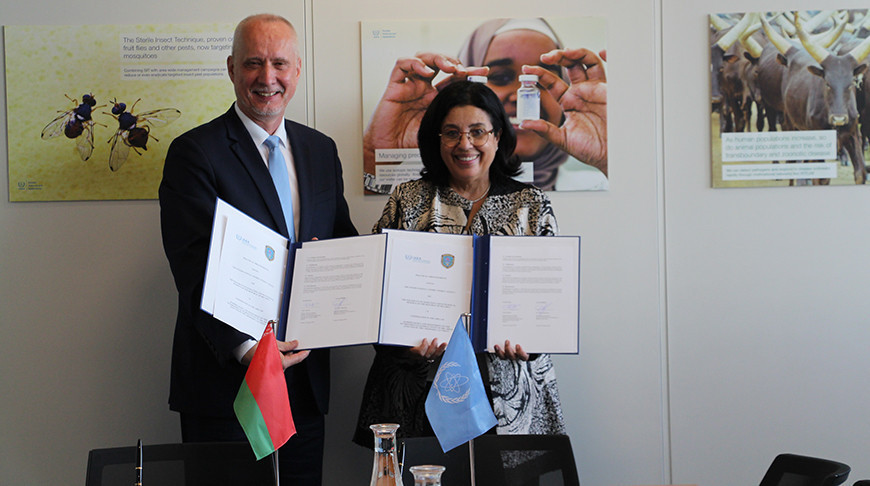
MINSK, 28 August (BelTA) – The Polesie State Radioecological Reserve and the International Atomic Energy Agency (IAEA) intend to expand cooperation, the press service of the Belarusian Ministry of Foreign Affairs told BelTA.
According to the ministry, Belarus’ Permanent Representative to the International Organizations in Vienna Andrei Dapkiunas and IAEA Deputy Director General Najat Mokhtar signed a document on practical arrangements between the IAEA and the Polesie State Radioecological Reserve.
The signed document lays the groundwork for broader cooperation in radioecology and monitoring of environmental radioactive contamination in the areas affected by the Chernobyl nuclear power plant accident.
The agreement provides for joint research, information and data exchange, and the development of educational and training programs.
During the meeting, the Belarusian permanent representative and the IAEA deputy director general discussed the implementation of the document and prospects for further interaction. Andrei Dapkiunas expressed gratitude to the IAEA for long-term constructive cooperation in radiation monitoring and research into the consequences of the Chernobyl nuclear disaster. He also emphasized the agency’s important role in strengthening the national capacity in radiation safety and supporting scientific research.
The Belarusian diplomat noted the importance of the Polesie Reserve as a unique research and environmental protection site with decades of experience in radioecology. He confirmed Belarus’ readiness to share its expertise and to enhance international cooperation in this field.
The IAEA deputy director general emphasized the significance of the scientific and practical experience in dealing with the aftermath of the Chernobyl nuclear accident that the reserve has gained. This experience is of global importance for understanding the behavior of radionuclides in the environment. She noted that for over 30 years the reserve has been conducting unique radiation monitoring, carrying out research that is important for the entire international community, and working to restore the affected territories. These developments are a valuable contribution to international efforts to advance radioecological approaches and methods.
The Ministry of Foreign Affairs added that the parties agreed to further deepen the partnership between Belarus and the IAEA.













